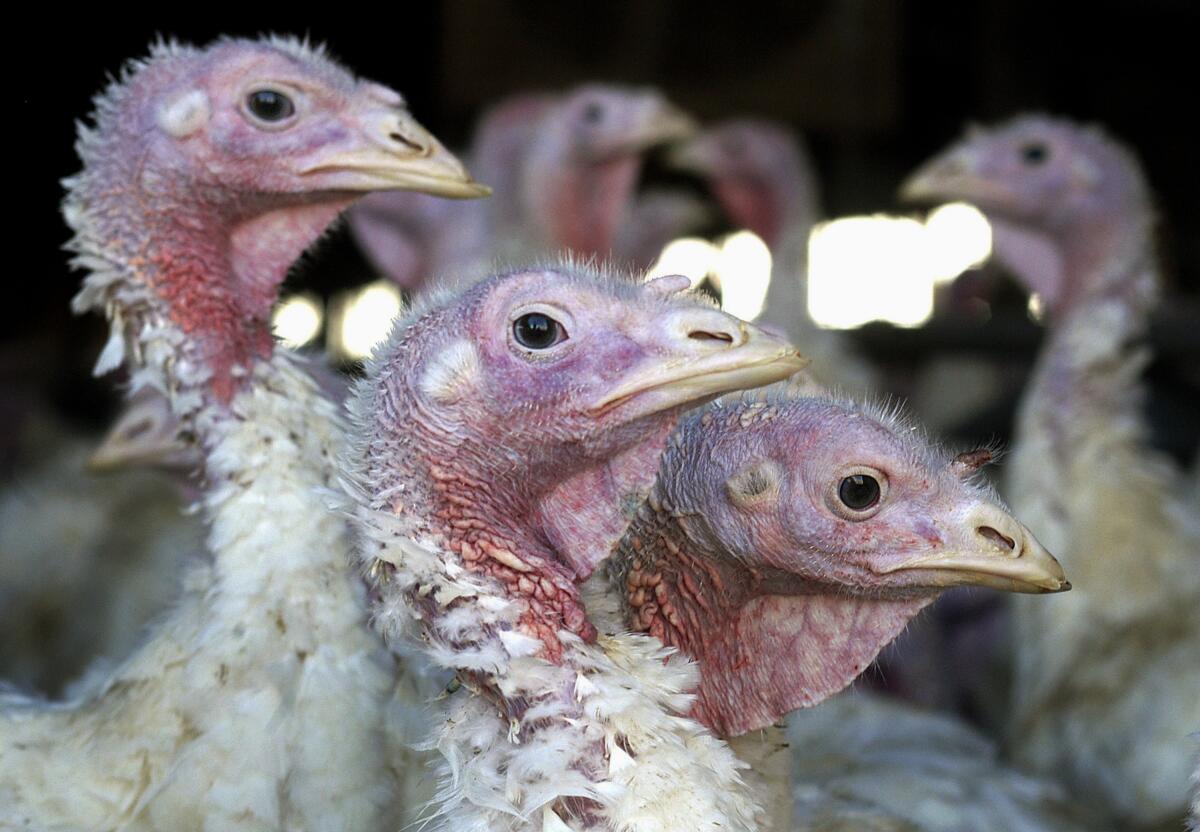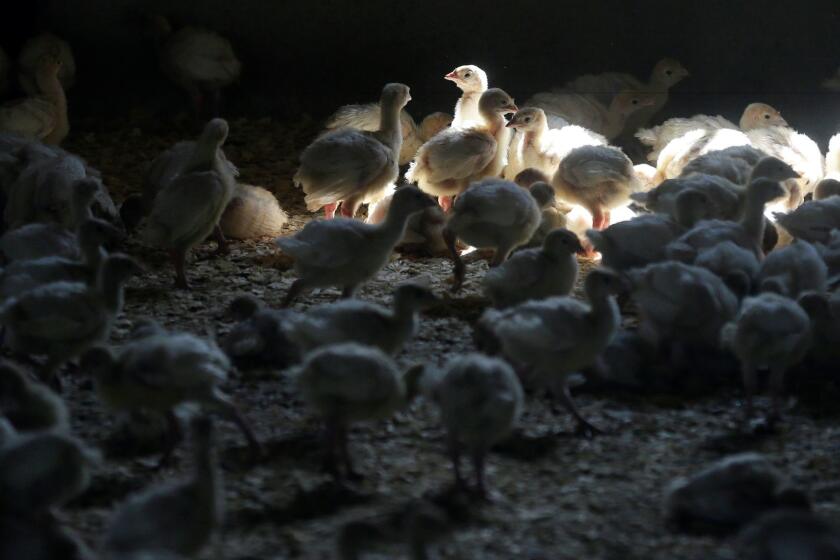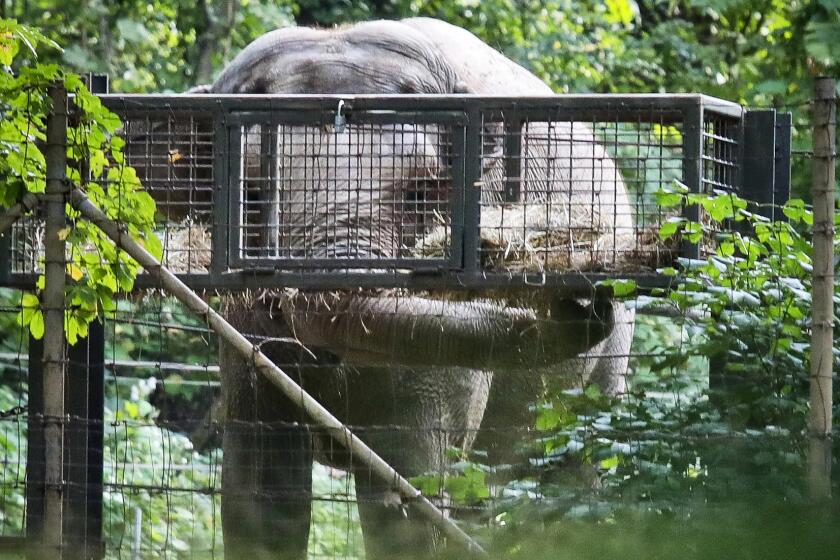Opinion: This Thanksgiving, don’t eat turkeys. Try honoring them instead

- Share via
It’s time to talk turkey. As we prepare for Thanksgiving, our national holiday of gratitude, we should know that millions of these birds endure unspeakable cruelty, confined to factory farms.
Each year, approximately 46 million turkeys are slaughtered for the Thanksgiving holiday, and this year the suffering of these smart and socially sophisticated animals is compounded by the return of bird flu to the nation’s turkey industry. Like COVID-19, this airborne disease spreads quickly, and the number of U.S. farmed birds that have died or have been culled due to avian flu since 2022 has passed 60 million.
When I teach practical ethics, I encourage my students to take the arguments we discuss outside the classroom.
While industry and government officials claim that bird flu does not threaten public health, it has infected people, and human cases reported since 2003 have shown a 52% mortality rate. Disease outbreaks in animals, exacerbated by the stress, overcrowding and irresponsible overuse of antibiotics in factory farming, pose a risk to humans and other animals. This Thanksgiving take a minute to consider a healthier and kinder holiday.
The appalling cruelty endured by turkeys and other animals on industrial farms is an affront to our humanity. A national survey commissioned by the Animal Welfare Institute in 2021, found that 70% of poultry consumers were opposed to denying birds access to the outdoors, and 63% opposed the cutting of turkeys’ beaks and toes without pain relief, common practices used to maximize profitability.
Factory-farmed turkeys, which by one estimate account for more than 99% of U.S. farmed turkeys, can’t engage in natural behaviors, and they have been bred to grow so fast and large that mating is physically impossible. The industry now relies on artificial insemination for reproduction, which includes the disturbing and violent practices of “milking” toms and inseminating hens.
We need a new approach to animal rights that centers on their freedom to act — not just protecting them from harm — to save them from injustice.
The bird flu outbreaks that have plagued commercial poultry operations since 2020 have made matters worse, including its reemergence this fall. In Iowa alone, more than 127,000 turkeys have been culled due to the disease since Oct. 20.
Culling refers to the killing of animals before they would have been slaughtered for human consumption, and because bird flu is highly contagious and usually fatal, farms with the disease have to cull their entire flocks. Factory farms house thousands of birds in warehouses and killing them en masse is typically done in the easiest and least costly way possible, with no regard to animal suffering.
Millions of birds have been culled through ventilation shutdown, which is akin to intentionally leaving a dog in a car to die on a hot day. Animals die slowly over the course of hours as ventilation to the barn is sealed off and the heat is turned up. Their agony has been documented in pigs and birds by undercover investigators.
A new case in California will test the theory that captive elephants should be allowed to petition for their liberty.
We can opt out of supporting such needless suffering by putting compassion for animals, people and the planet at the center of our holiday celebrations. At Farm Sanctuary, we turn the tables on the Thanksgiving season, and encourage people to adopt a turkey rather than eat one. We honor and recognize these much-maligned individuals each year with our Celebration for the Turkeys, where rescued turkeys at our sanctuaries near Los Angeles and New York are guests of honor, not the main course, at a holiday feast.
Of course, not all of us will welcome turkeys to our table — but we can easily leave them off our plates. By choosing a plant-based Thanksgiving meal, we can combat cruelty and embrace a better holiday.
Gene Baur is president and co-founder of the farm animal sanctuary and advocacy organization Farm Sanctuary.
More to Read
A cure for the common opinion
Get thought-provoking perspectives with our weekly newsletter.
You may occasionally receive promotional content from the Los Angeles Times.













